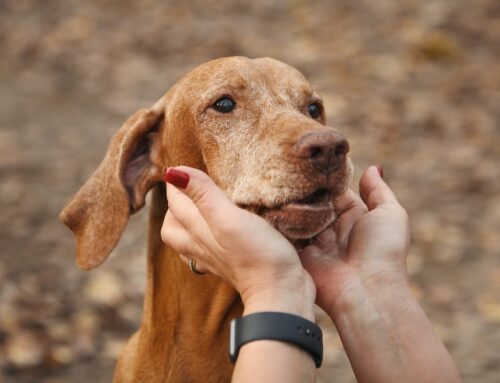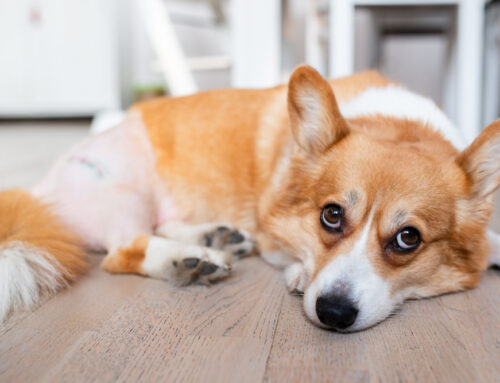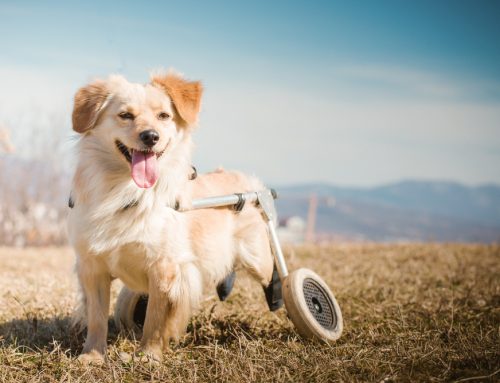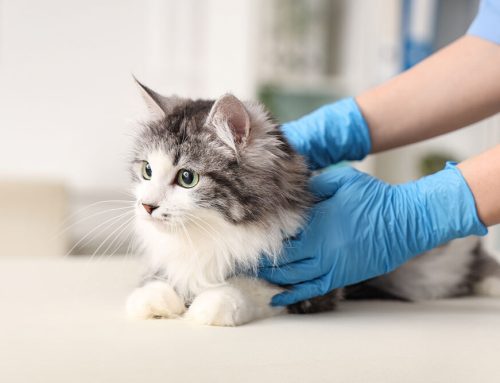The holidays are filled with joy, beauty, and, most importantly, food. Cookie exchanges, potluck dinners, and large meals are standard during the holiday season, and pets naturally want to join the fun. Pet owners also want to share their delicious meals with their furry pals, especially during a season when the emphasis is on giving and generosity. The Homestead Animal Hospital team knows that sharing holiday food with pets can be problematic and they can become ill, so we outline the holiday foods that put your pet at risk and the foods you can safely offer them—always in moderation.
Holiday food pet safety risks
Although some pets seem to have stomachs of steel, most are prone to occasional digestive upsets. Minor diarrhea and occasional vomiting can occur when pets eat something new, while some foods can lead to more serious or life-threatening reactions. The risks associated with holiday foods include:
- Gastroenteritis — Vomiting and diarrhea are common when pets eat food that their digestive system isn’t accustomed to. Gastroenteritis is usually self-limiting, but pets who become dehydrated or do not get better on their own may require treatment.
- Pancreatitis — This inflammation of the pancreas is caused by excessive fat intake in dogs and can lead to serious illness if damaged pancreatic cells cause inflammation throughout the body and impact organ function. Hospitalization is required for recovery for most pets. Signs include vomiting, diarrhea, belly pain, appetite loss, fever, and lethargy.
- Toxicity — Toxic foods can cause various signs that range from mild stomach upset to organ damage, seizures, coma, or death.
- Foreign body obstruction — Bones and non-food items are the most likely holiday causes for foreign body obstructions, which can block the stomach or intestines and require emergency surgeries to resolve. Signs include vomiting, belly pain, and possible fever.
Unsafe holiday foods for pets
Unfortunately, many holiday foods are unsafe for pets. Here is a list of the most common offenders:
- Chocolate — Chocolate contains methylxanthines, compounds that overstimulate a pet’s nervous system. Chocolate toxicity can cause vomiting, hyperactivity, seizures, tremors, elevated body temperature, heart rhythm problems and, in severe cases, death.
- Raisins — Raisins in the fruitcake or oatmeal cookies can cause kidney failure in dogs.
- Macadamia nuts — Macadamia nuts can make those chocolate chip cookies doubly dangerous, because they cause vomiting, diarrhea, and difficulty walking.
- Garlic and onions — Garlic, onions, and related veggies used to flavor various holiday dishes can damage a pet’s red blood cells, leading to impaired oxygen transport, cell destruction, and anemia several days after ingestion.
- Xylitol — This artificial sweetener used in some baked goods or candies causes a dangerously low drop in blood sugar and liver damage.
- Fatty meats or scraps — Fatty meats, meat skin, scraps, butter, and gravy can cause pancreatitis in susceptible pets.
- Cooked bones — Cooked meat bones can splinter and damage or block the digestive tract.
- Yeast dough — Raw yeast dough can ferment in a pet’s stomach, causing dangerous bloating and intoxication.
Safe holiday foods for pets
Remember that during the holidays pets can become stressed, which itself can cause stomach upset. Add to that new or unusual foods, and you have a recipe for an emergency veterinary visit. The safest holiday foods are those your pet eats regularly, but you can still spice up their holiday routine with small amounts of these foods:
- Oatmeal, peanut butter, or honey-based home-baked pet treats
- Plain, boiled, boneless, unseasoned white-meat chicken or turkey
- Plain, boiled, unseasoned vegetables, including carrots, potatoes, sweet potatoes, or green beans
What if your pet eats unsafe holiday food?

If you believe your pet ate toxic food, contact the ASPCA Animal Poison Control Center or the Pet Poison Helpline. These services employ professional toxicologists who can answer your questions, guide you based on what and how much your pet consumed and help emergency services treat your pet for serious toxicity. Reach out to our team during normal hours or call our after-hours triage phone line if your pet suffers from vomiting, diarrhea, abdominal pain, or lethargy associated with eating holiday food.
The holidays can be stressful, but you can eliminate one source of that stress by ensuring your pet does not get sick from holiday food. Our guide can help you determine which foods are safe for your furry pal, or you can contact our Homestead Animal Hospital team for additional advice. For emergency assistance, reach out to our team or call the nearest veterinary emergency center for care.
















Leave A Comment